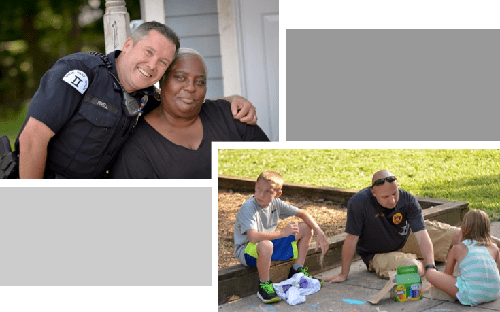
“The Riverfront Coalition in the Historic City of Burlington, New Jersey was formed in 2017 and is focused on reducing youth use of alcohol and marijuana,” said Coalition Coordinator Joseph Conlin. “The City is located on the Delaware River and is within 20 minutes of Camden and Philadelphia. We are now in our second year of DFC funding.
“One of our biggest accomplishments this year was helping to plan and participate in a Play Streets event in July,” said Conlin. “The coalition is part of a youth partnership that includes our faith-based leaders, school representatives, business and law enforcement members and other agencies in the local area who want to help out in the community. To get things started, the coalition’s faith-based members participated in a local park and playground cleanup on Barclay Street, an area that has been abandoned by the community and has been known in the past for drug use and juvenile crime. The park was cleaned, and all the equipment was painted and repaired. To celebrate the new clean playground, we helped organize the Play Streets event. At this event on a hot July night, community members and coalition members came together to celebrate the safe community, play games, participate in arts and crafts, enjoy food and meet the local police. The coalition provided t-shirts for all participants and had an information and registration table to recruit new members. It was amazing to see the community and the coalition members come together for such a wonderful evening.
“As the evening was drawing to a close the high school principal informed us that Burlington City High School had a 100% graduation rate for the first time in over 10 years,” said Conlin. “The school has had one of the lowest graduation rates in the county in the past few years. This is an incredible result of much hard work from the school staff and reflects the efforts of our coalition youth peer leaders, who we have been meeting with at the high school on a monthly basis for just over a year.
“Our most recent student survey results show that the age of first use of alcohol has jumped a full year, from 13.3 years old in 2017 to 14.3 in 2019,” said Conlin. “We have also learned that there has been a decrease in juvenile crime during that same time period.
“There is still much work to be done and our advice to other coalitions is to stay the course and continue to build capacity and bring community members to the table,” said Conlin. “We are in the planning stages for a trip to the CADCA National Leadership Forum, and we highly recommend it for anyone who has never had the pleasure of attending.”


